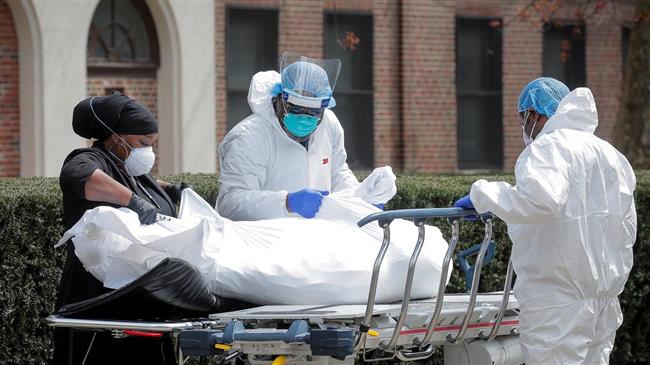Global Covid-19 cases pass 40 million as Europe tightens restrictions
The number of confirmed coronavirus cases worldwide passed 40 million on Monday, as fresh measures to combat the spread of the virus came into effect in several European countries.
Belgium imposes a nationwide overnight curfew from Monday and Switzerland has made wearing face masks compulsory in indoor public spaces, the latest measures by European governments to fight a powerful second coronavirus wave.
The latest surge in cases sent the total registered worldwide past 40 million Monday morning, according to an AFP tally based on official sources. More than half the caseload is in the three hardest-hit countries: the US, India and Brazil.
In Europe, more than 250,000 people have died, but the deepening crisis there stands in contrast to Australia where Melbourne, the second-largest city, has begun easing a lockdown that kept millions of people largely confined to their homes for months.
Cafés and restaurants across Belgium were shuttered for four weeks as the country tackled its own infection spike, part of a continent-wide surge that has seen a 44 percent increase in cases across Europe in the past week.
“The situation is serious. It is worse than on March 18 when the lockdown was decided,” Prime Minister Alexander De Croo told Belgian television RTL Info.
The overnight curfew in Belgium came days after France imposed a nighttime curfew in nine cities, including the Paris metropolitan area. The curfew came as France hit a record 32,400 new infections on Saturday.
Reporting from Brussels, FRANCE 24’s Dave Keating said the restrictions in Belgium “are similar to that in France. But they’re more severe in some areas, less severe in other areas. The curfew is nationwide here, not just in the bigger cities, but it’s only from midnight to 5am, not from 9pm to 6pm as it is in France”.
Some businesses have protested despite authorities warning the country was in the middle of an exponential increase in cases.
“We don’t feel considered, and it hurts my heart,” said Angelo Bussi, a restaurant manager in Brussels. “Everyone is in pain. It’s horrible.”
Europe tightens restrictions as continent faces rise in Covid-19 cases
Switzerland was largely spared when the coronavirus emerged in China late last year and swept the world.
But infections have doubled in the wealthy Alpine nation in the last seven days, prompting new restrictions including compulsory mask-wearing in public spaces indoors and limits on public gatherings.
“The second wave is here, earlier and stronger than we expected, but we are prepared,” Health Minister Alain Berset told journalists.
The canton of Bern also banned public events of more than a thousand people, which will hit professional football and hockey matches.
Meanwhile Italy announced fresh curbs on Sunday night in response to its own snowballing second wave of contagion, after enduring Europe’s first major outbreak earlier this year.
“We cannot waste time,” said Prime Minister Giuseppe Conte, flagging bans on amateur team sports, and earlier closures for bars and restaurants.
The new measures were intended to avoid harsher measures that could “seriously endanger” continental Europe’s third-largest economy, already reeling from a two-month nationwide lockdown only lifted in May.
‘I am doing what is safe’
An even longer lockdown began coming to an end in Australia on Monday, where the five million inhabitants of Melbourne were allowed to leave their homes for more than two hours a day for the first time since July.
Residents dashed back to reopened salons and golf courses that had been closed for more than 100 days, though restaurants and most other retail businesses will remain shut until November at the earliest as the authorities monitor case numbers.
“I’m not doing what is popular, I am doing what is safe, because we don’t want to be back here again,” said Daniel Andrews, the premier of Victoria state of which Melbourne is the capital.
Israel has also lifted restrictions that banned people from travelling more than a kilometre from their homes as well as closing kindergartens, beaches and national parks.
Israeli mother Talia Zinkin said she was initially unsure whether to send her son back to daycare.
“But I felt he would enjoy being with other children,” she told AFP. “We have to try to live normally.”
Grand Mosque in Mecca to be sterilised
Saudi Arabia eased more of its own virus restrictions when it allowed worshippers to reenter Islam’s holiest site for prayers on Sunday for the first time since March.
The Grand Mosque in Mecca is the site of the annual hajj pilgrimage that draws Muslims from around the world but only 10,000 people were allowed to take part this year, a far cry from the 2.5 million who participated last year.
The structure will be sterilised before and after each group of worshippers, and thermal sensors have been installed to measure the body temperature of pilgrims.
Veteran chief Palestinian negotiator Saeb Erekat, the latest political figure to be infected with the virus, is in a “critical” condition and in a medically induced coma, the Israeli hospital treating him in Jerusalem said Monday.
(FRANCE 24 with AFP and REUTERS)





